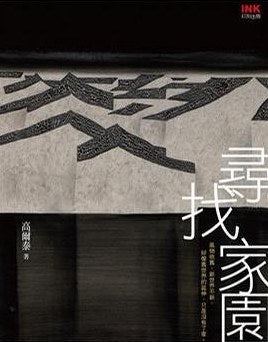WULOLIFE
《寻找家园》作者: 高爾泰 出版社: 印刻文學生活雜誌出版有限公司
《寻找家园》作者: 高爾泰 出版社: 印刻文學生活雜誌出版有限公司
Couldn't load pickup availability
Description
内容简介 · · · · · ·
風物依舊,新世界不新,好像舊世界的延伸,只是沒有了家。——高爾泰
一個理想主義者對尊嚴、美學與自由的追求
美學名家高爾泰生死歌哭之作
2007年獲北京當代漢語研究所「當代漢語貢獻獎」
被譽為當代散文最美的收穫之一
你很久沒有看見這樣一部作品了。文字可以如此簡單又無比優雅,情感可以如此清簡又無比飽滿。原來故事可以這樣講,原來歷史可以這樣看,不用吶喊,不用悲泣,卻讓你懂得!從內心裡真正懂得。
本書共三卷。
第一卷【夢裡家山】,從一個孩子的眼睛,看一個角落裡的一段歷史。江南小城,抗戰逃難,深山小村,戰後還鄉,政權易手,「土地改革」、「鎮反運動」……為了孩子的安故園家破人亡。
第二卷【流沙墜簡】,寫一個大學生在「肅反運動」中,因「思想問題」被審查,畢業後分配西北,被打成右派,送往戈壁灘上一個關押著三千多人的右派集中營「勞動教養」。不到三年,已有兩千多人死亡。他偶然倖存,得以回到社會,再次家破人亡。
第三卷【天蒼地茫】,寫「新時期」一個獨立知識分子的命運。「平反」、「歸隊」以後,因違反「四項基本原則」,被「清除清神污染」,禁止教書和出書。後來又被國家科委授予「有突出貢獻的國家級專家」稱號。再後來又以「反革命宣傳」被捕入獄,出獄後逃出中國。
高爾泰說:「除了活著,有更多。更多之一,是意義的追尋。」又說「在這資訊滔滔,文字滾滾,每天的印刷品我一再囑咐自己,要寫得慢些,再慢些。少些,再少些。」他的文字清麗,飽滿而沉重,書中有控訴、有寬容,也有對現實的詰問與超越歷史的思考,以及黑暗底下真正的潔白。面對歷史與過往,高爾泰選擇了寬恕,但他卻以剛直的秉性,發出了「絕不妥協」的強音
作者简介 · · · · · ·
高尔泰,著名美学家,旅美学者。1935年生,1955年毕业于江苏师范学院。中国社科院哲学所、兰州大学、南开大学、南京大学任职。现居美国,为内华达大学访问学者。著有《论美》、《美是自由的象征》等。
